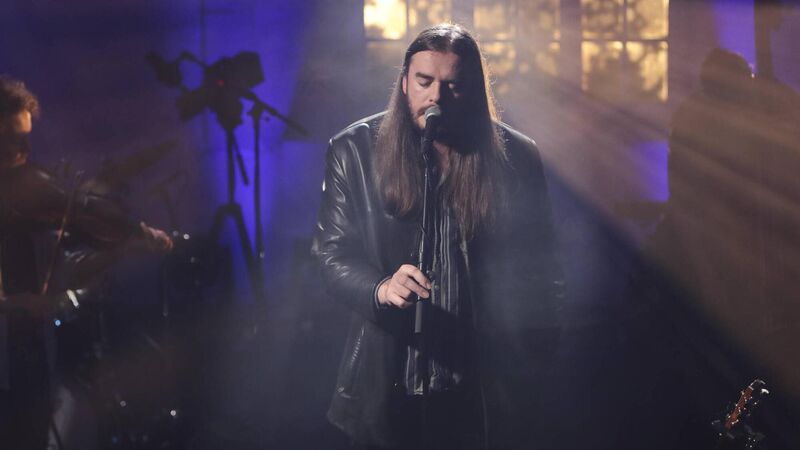John Francis Flynn: 'I’m not going to save Irish music because it doesn’t need saving'

John Francis Flynn at Other Voices; he plays St Luke's in Cork on Saturday.
On the morning that the news of Shane MacGowan's death breaks, John Francis Flynn has been to Belfast and back, to collect an errant vinyl pressing of his already critically acclaimed second album, Look Over The Wall See The Sky.
There are two songs on Flynn’s new album that, while not written by MacGowan, were certainly much-loved renditions of his: Ewan MacColl’s ‘Dirty Old Town’, and ‘Kitty’, which Flynn says is a song MacGowan learned from his mother, who would have first heard it around hearths in rural Co Tipperary as a child.




